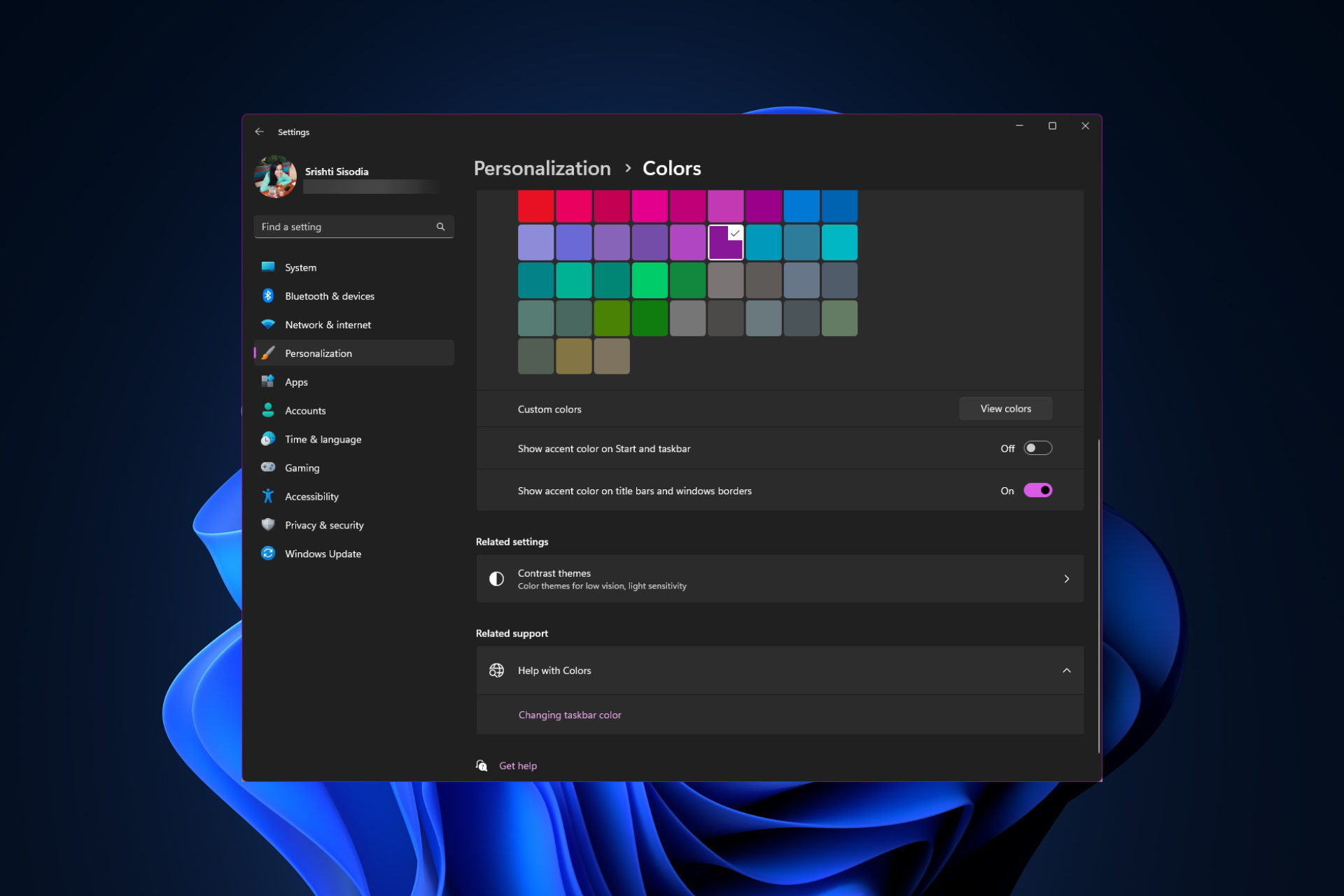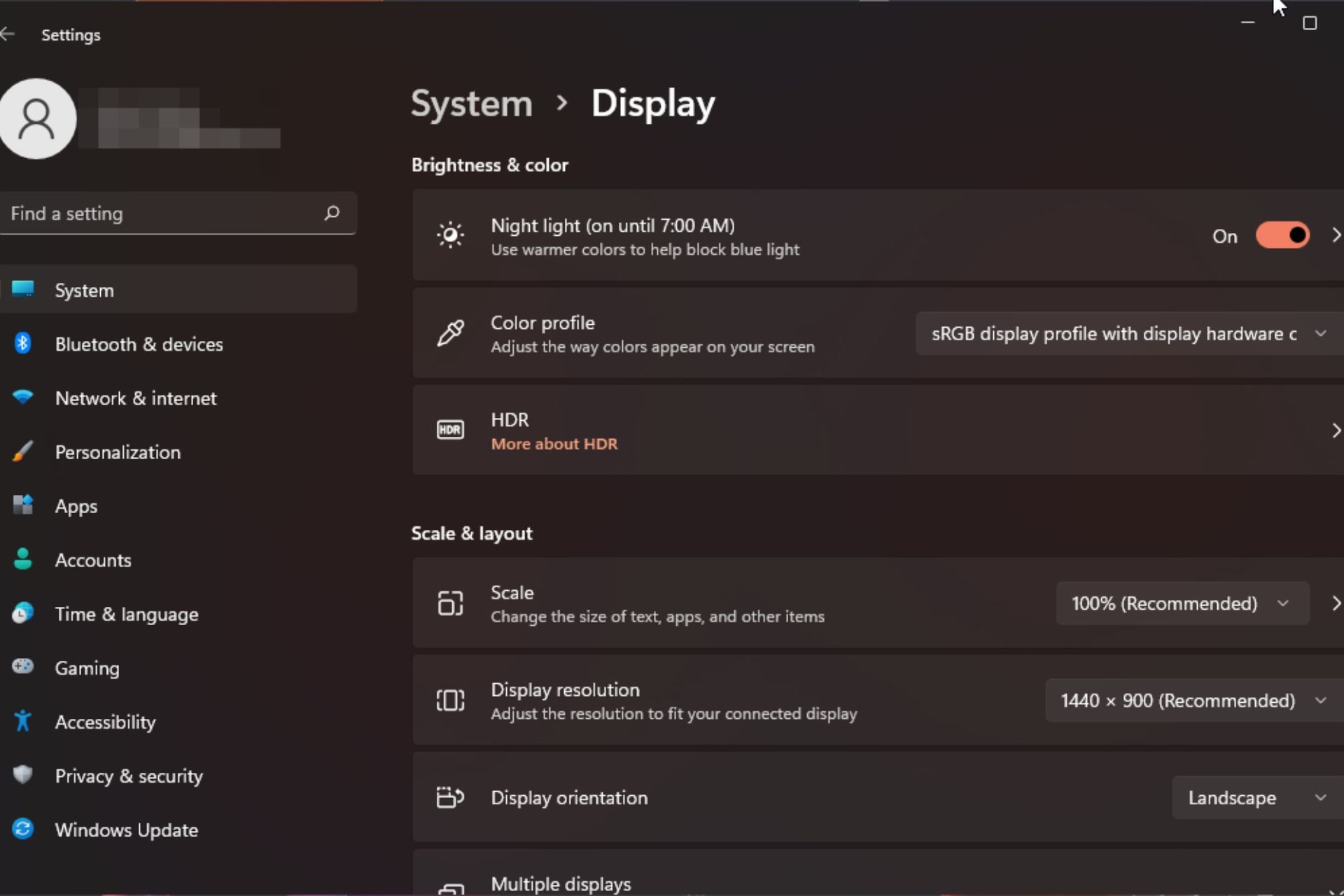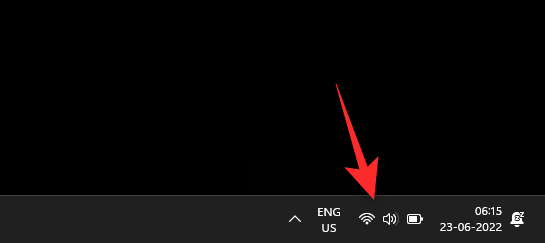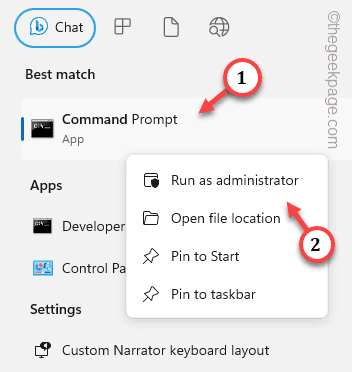位运算符允许对整型数中指定的位进行求值和操作。
| 例子 | 名称 | 结果 |
|---|---|---|
| And(按位与) | 将把 $a 和 $b 中都为 1 的位设为 1。 | |
| Or(按位或) | 将把 $a 和 $b 中任何一个为 1 的位设为 1。 | |
| Xor(按位异或) | 将把 $a 和 $b 中一个为 1 另一个为 0 的位设为 1。 | |
| Not(按位取反) | 将 $a 中为 0 的位设为 1,反之亦然。 | |
| Shift left(左移) | 将 $a 中的位向左移动 $b 次(每一次移动都表示“乘以 2”)。 | |
| Shift right(右移) | 将 $a 中的位向右移动 $b 次(每一次移动都表示“除以 2”)。 |
位移在 PHP 中是数学运算。向任何方向移出去的位都被丢弃。左移时右侧以零填充,符号位被移走意味着正负号不被保留。右移时左侧以符号位填充,意味着正负号被保留。
要用括号确保想要的优先级。例如 $a & $b == true 先进行比较再进行按位与;而 ($a & $b) == true 则先进行按位与再进行比较。
要注意数据类型的转换。如果左右参数都是字符串,则位运算符将对字符的 ASCII 值进行操作。
PHP 的 ini 设定 error_reporting 使用了按位的值, 提供了关闭某个位的真实例子。要显示除了提示级别 之外的所有错误,php.ini 中是这样用的: <span><codefira mono code pro word-wrap:break-word>E_ALL & ~E_NOTICE</codefira></span>
具体运作方式是先取得 E_ALL 的值: <span>00000000000000000111011111111111</span> 再取得 E_NOTICE 的值: <span>00000000000000000000000000001000</span> 然后通过 <span>~</span> 将其取反: <span>11111111111111111111111111110111</span> 最后再用按位与 AND(&)得到两个值中都设定了(为 1)的位: <span>00000000000000000111011111110111</span>
另外一个方法是用按位异或 XOR(<span>^</span>)来取得只在 其中一个值中设定了的位: <span><codefira mono code pro word-wrap:break-word>E_ALL ^ E_NOTICE</codefira></span>
error_reporting 也可用来演示怎样置位。只显示错误和可恢复 错误的方法是: <span><codefira mono code pro word-wrap:break-word>E_ERROR | E_RECOVERABLE_ERROR</codefira></span>
也就是将 E_ERROR <span>00000000000000000000000000000001</span> 和 E_RECOVERABLE_ERROR <span>00000000000000000001000000000000</span> 用按位或 OR(<span>|</span>)运算符来取得在任何一个值中被置位的结果: <span>00000000000000000001000000000001</span>
Example #1 整数的 AND,OR 和 XOR 位运算符
* Ignore the top section,
* it is just formatting to make output clearer.
*/
$format = '(%1$2d = %1$04b) = (%2$2d = %2$04b)'
. ' %3$s (%4$2d = %4$04b)' . "\n";
echo --------- --------- -- ---------
result value op test
--------- --------- -- ---------
EOH;
/*
* Here are the examples.
*/
$values = array(0, 1, 2, 4, 8);
$test = 1 + 4;
echo "\n Bitwise AND \n";
foreach ($values as $value) {
$result = $value & $test;
printf($format, $result, $value, '&', $test);
}
echo "\n Bitwise Inclusive OR \n";
foreach ($values as $value) {
$result = $value | $test;
printf($format, $result, $value, '|', $test);
}
echo "\n Bitwise Exclusive OR (XOR) \n";
foreach ($values as $value) {
$result = $value ^ $test;
printf($format, $result, $value, '^', $test);
}
?>
以上例程会输出:
--------- --------- -- --------- result value op test --------- --------- -- --------- Bitwise AND ( 0 = 0000) = ( 0 = 0000) & ( 5 = 0101) ( 1 = 0001) = ( 1 = 0001) & ( 5 = 0101) ( 0 = 0000) = ( 2 = 0010) & ( 5 = 0101) ( 4 = 0100) = ( 4 = 0100) & ( 5 = 0101) ( 0 = 0000) = ( 8 = 1000) & ( 5 = 0101) Bitwise Inclusive OR ( 5 = 0101) = ( 0 = 0000) | ( 5 = 0101) ( 5 = 0101) = ( 1 = 0001) | ( 5 = 0101) ( 7 = 0111) = ( 2 = 0010) | ( 5 = 0101) ( 5 = 0101) = ( 4 = 0100) | ( 5 = 0101) (13 = 1101) = ( 8 = 1000) | ( 5 = 0101) Bitwise Exclusive OR (XOR) ( 5 = 0101) = ( 0 = 0000) ^ ( 5 = 0101) ( 4 = 0100) = ( 1 = 0001) ^ ( 5 = 0101) ( 7 = 0111) = ( 2 = 0010) ^ ( 5 = 0101) ( 1 = 0001) = ( 4 = 0100) ^ ( 5 = 0101) (13 = 1101) = ( 8 = 1000) ^ ( 5 = 0101)
Example #2 字符串的 XOR 运算符
echo "12" ^ "9"; // Outputs the Backspace character (ascii 8)
// ('1' (ascii 49)) ^ ('9' (ascii 57)) = #8
echo "hallo" ^ "hello"; // Outputs the ascii values #0 #4 #0 #0 #0
// 'a' ^ 'e' = #4
echo 2 ^ "3"; // Outputs 1
// 2 ^ ((int)"3") == 1
echo "2" ^ 3; // Outputs 1
// ((int)"2") ^ 3 == 1
?>
Example #3 整数的位移
* Here are the examples.
*/
echo "\n--- BIT SHIFT RIGHT ON POSITIVE INTEGERS ---\n";
$val = 4;
$places = 1;
$res = $val >> $places;
p($res, $val, '>>', $places, 'copy of sign bit shifted into left side');
$val = 4;
$places = 2;
$res = $val >> $places;
p($res, $val, '>>', $places);
$val = 4;
$places = 3;
$res = $val >> $places;
p($res, $val, '>>', $places, 'bits shift out right side');
$val = 4;
$places = 4;
$res = $val >> $places;
p($res, $val, '>>', $places, 'same result as above; can not shift beyond 0');
echo "\n--- BIT SHIFT RIGHT ON NEGATIVE INTEGERS ---\n";
$val = -4;
$places = 1;
$res = $val >> $places;
p($res, $val, '>>', $places, 'copy of sign bit shifted into left side');
$val = -4;
$places = 2;
$res = $val >> $places;
p($res, $val, '>>', $places, 'bits shift out right side');
$val = -4;
$places = 3;
$res = $val >> $places;
p($res, $val, '>>', $places, 'same result as above; can not shift beyond -1');
echo "\n--- BIT SHIFT LEFT ON POSITIVE INTEGERS ---\n";
$val = 4;
$places = 1;
$res = $val $places;
p($res, $val, ', $places, 'zeros fill in right side');
$val = 4;
$places = (PHP_INT_SIZE * 8) - 4;
$res = $val $places;
p($res, $val, ', $places);
$val = 4;
$places = (PHP_INT_SIZE * 8) - 3;
$res = $val $places;
p($res, $val, ', $places, 'sign bits get shifted out');
$val = 4;
$places = (PHP_INT_SIZE * 8) - 2;
$res = $val $places;
p($res, $val, ', $places, 'bits shift out left side');
echo "\n--- BIT SHIFT LEFT ON NEGATIVE INTEGERS ---\n";
$val = -4;
$places = 1;
$res = $val $places;
p($res, $val, ', $places, 'zeros fill in right side');
$val = -4;
$places = (PHP_INT_SIZE * 8) - 3;
$res = $val $places;
p($res, $val, ', $places);
$val = -4;
$places = (PHP_INT_SIZE * 8) - 2;
$res = $val $places;
p($res, $val, ', $places, 'bits shift out left side, including sign bit');
/*
* Ignore this bottom section,
* it is just formatting to make output clearer.
*/
function p($res, $val, $op, $places, $note = '') {
$format = '%0' . (PHP_INT_SIZE * 8) . "b\n";
printf("Expression: %d = %d %s %d\n", $res, $val, $op, $places);
echo " Decimal:\n";
printf(" val=%d\n", $val);
printf(" res=%d\n", $res);
echo " Binary:\n";
printf(' val=' . $format, $val);
printf(' res=' . $format, $res);
if ($note) {
echo " NOTE: $note\n";
}
echo "\n";
}
?>
以上例程在 32 位机器上的输出:
--- BIT SHIFT RIGHT ON POSITIVE INTEGERS ---
Expression: 2 = 4 >> 1
Decimal:
val=4
res=2
Binary:
val=00000000000000000000000000000100
res=00000000000000000000000000000010
NOTE: copy of sign bit shifted into left side
Expression: 1 = 4 >> 2
Decimal:
val=4
res=1
Binary:
val=00000000000000000000000000000100
res=00000000000000000000000000000001
Expression: 0 = 4 >> 3
Decimal:
val=4
res=0
Binary:
val=00000000000000000000000000000100
res=00000000000000000000000000000000
NOTE: bits shift out right side
Expression: 0 = 4 >> 4
Decimal:
val=4
res=0
Binary:
val=00000000000000000000000000000100
res=00000000000000000000000000000000
NOTE: same result as above; can not shift beyond 0
--- BIT SHIFT RIGHT ON NEGATIVE INTEGERS ---
Expression: -2 = -4 >> 1
Decimal:
val=-4
res=-2
Binary:
val=11111111111111111111111111111100
res=11111111111111111111111111111110
NOTE: copy of sign bit shifted into left side
Expression: -1 = -4 >> 2
Decimal:
val=-4
res=-1
Binary:
val=11111111111111111111111111111100
res=11111111111111111111111111111111
NOTE: bits shift out right side
Expression: -1 = -4 >> 3
Decimal:
val=-4
res=-1
Binary:
val=11111111111111111111111111111100
res=11111111111111111111111111111111
NOTE: same result as above; can not shift beyond -1
--- BIT SHIFT LEFT ON POSITIVE INTEGERS ---
Expression: 8 = 4 <p></p><p>以上例程在 64 位机器上的输出:</p><p></p><p></p><pre class="brush:php;toolbar:false">--- BIT SHIFT RIGHT ON POSITIVE INTEGERS ---
Expression: 2 = 4 >> 1
Decimal:
val=4
res=2
Binary:
val=0000000000000000000000000000000000000000000000000000000000000100
res=0000000000000000000000000000000000000000000000000000000000000010
NOTE: copy of sign bit shifted into left side
Expression: 1 = 4 >> 2
Decimal:
val=4
res=1
Binary:
val=0000000000000000000000000000000000000000000000000000000000000100
res=0000000000000000000000000000000000000000000000000000000000000001
Expression: 0 = 4 >> 3
Decimal:
val=4
res=0
Binary:
val=0000000000000000000000000000000000000000000000000000000000000100
res=0000000000000000000000000000000000000000000000000000000000000000
NOTE: bits shift out right side
Expression: 0 = 4 >> 4
Decimal:
val=4
res=0
Binary:
val=0000000000000000000000000000000000000000000000000000000000000100
res=0000000000000000000000000000000000000000000000000000000000000000
NOTE: same result as above; can not shift beyond 0
--- BIT SHIFT RIGHT ON NEGATIVE INTEGERS ---
Expression: -2 = -4 >> 1
Decimal:
val=-4
res=-2
Binary:
val=1111111111111111111111111111111111111111111111111111111111111100
res=1111111111111111111111111111111111111111111111111111111111111110
NOTE: copy of sign bit shifted into left side
Expression: -1 = -4 >> 2
Decimal:
val=-4
res=-1
Binary:
val=1111111111111111111111111111111111111111111111111111111111111100
res=1111111111111111111111111111111111111111111111111111111111111111
NOTE: bits shift out right side
Expression: -1 = -4 >> 3
Decimal:
val=-4
res=-1
Binary:
val=1111111111111111111111111111111111111111111111111111111111111100
res=1111111111111111111111111111111111111111111111111111111111111111
NOTE: same result as above; can not shift beyond -1
--- BIT SHIFT LEFT ON POSITIVE INTEGERS ---
Expression: 8 = 4 <p><span>Warning</span></p><p>不要在 32 位系统下向右移超过 32 位。不要在结果可能超过 32 的情况下左移。使用 gmp 扩展对超出 PHP_INT_MAX 的数值来进行位操作。</p><p>参见 <span>pack()</span>,<span>unpack()</span>,<span>gmp_and()</span>,<span>gmp_or()</span>,<span>gmp_xor()</span>,<span>gmp_testbit()</span> 和 <span>gmp_clrbit()</span>。</p><p><span><img src="/static/imghwm/default1.png" data-src="http://image.codes51.com/Article/image/20150824/20150824204951_7209.png" class="lazy" alt="add a note" style="max-width:90%" style="max-width:90%"> <small>add
a note</small></span></p><p>User Contributed Notes <span>43 notes</span></p><p></p><p></p><p></p><p>up</p><p>down</p><div title="87% like this...">46<span><span>wbcarts
at juno dot com</span></span> ?
<div title="2012-05-17 03:52">
<span>3 years ago</span><p></p>
<p><codefira mono code pro word-wrap:break-word display:block><span>BITWISE FLAGS for Custom
PHP Objects<br>Sometimes I need a custom PHP Object that holds several boolean TRUE or FALSE values. I could easily include a variable for each of them, but as always, code has a way to get unweildy pretty fast. A more intelligent approach always seems to be the answer, even
if it seems to be overkill at first.<br>I start with an abstract base class which will hold a single integer variable called $flags. This simple integer can hold 32 TRUE or FALSE boolean values. Another thing to consider is to just set certain BIT values without disturbing any of the other BITS --
so included in the class definition is the setFlag($flag, $value) function, which will set only the chosen bit. Here's the abstract base class definition: <br><span><?php <br></span><span># BitwiseFlag.php<br></span><span>abstract class </span><span>BitwiseFlag<br></span><span>{<br> protected </span><span>$flags</span><span>;<br> </span><span>/*<br> * Note: these functions are protected to prevent outside code<br> * from falsely setting BITS. See how the extending class 'User'<br> * handles this.<br> *<br> */<br> </span><span>protected function </span><span>isFlagSet</span><span>(</span><span>$flag</span><span>)<br> {<br> return ((</span><span>$this</span><span>-></span><span>flags </span><span>& </span><span>$flag</span><span>)
== </span><span>$flag</span><span>);<br> }<br> protected function </span><span>setFlag</span><span>(</span><span>$flag</span><span>, </span><span>$value</span><span>)<br> {<br> if(</span><span>$value</span><span>)<br> {<br> </span><span>$this</span><span>-></span><span>flags </span><span>|= </span><span>$flag</span><span>;<br> }<br> else<br> {<br> </span><span>$this</span><span>-></span><span>flags </span><span>&=
~</span><span>$flag</span><span>;<br> }<br> }<br>}<br></span><span>?><br></span><br>The class above is abstract and cannot be instantiated, so an extension is required. Below is a simple extension called User -- which is severely truncated for clarity. Notice I am defining const variables AND methods to use them.<br><span><?php <br></span><span># User.php<br></span><span>require(</span><span>'BitwiseFlag.php'</span><span>);<br>class </span><span>User </span><span>extends </span><span>BitwiseFlag<br></span><span>{<br> const </span><span>FLAG_REGISTERED </span><span>= </span><span>1</span><span>; </span><span>//
BIT #1 of $flags has the value 1<br> </span><span>const </span><span>FLAG_ACTIVE </span><span>= </span><span>2</span><span>;
</span><span>// BIT #2 of $flags has the value 2<br> </span><span>const </span><span>FLAG_MEMBER </span><span>= </span><span>4</span><span>;
</span><span>// BIT #3 of $flags has the value 4<br> </span><span>const </span><span>FLAG_ADMIN </span><span>= </span><span>8</span><span>;
</span><span>// BIT #4 of $flags has the value 8<br> </span><span>public function </span><span>isRegistered</span><span>(){<br> return </span><span>$this</span><span>-></span><span>isFlagSet</span><span>(</span><span>self</span><span>::</span><span>FLAG_REGISTERED</span><span>);<br> }<br> public function </span><span>isActive</span><span>(){<br> return </span><span>$this</span><span>-></span><span>isFlagSet</span><span>(</span><span>self</span><span>::</span><span>FLAG_ACTIVE</span><span>);<br> }<br> public function </span><span>isMember</span><span>(){<br> return </span><span>$this</span><span>-></span><span>isFlagSet</span><span>(</span><span>self</span><span>::</span><span>FLAG_MEMBER</span><span>);<br> }<br> public function </span><span>isAdmin</span><span>(){<br> return </span><span>$this</span><span>-></span><span>isFlagSet</span><span>(</span><span>self</span><span>::</span><span>FLAG_ADMIN</span><span>);<br> }<br> public function </span><span>setRegistered</span><span>(</span><span>$value</span><span>){<br> </span><span>$this</span><span>-></span><span>setFlag</span><span>(</span><span>self</span><span>::</span><span>FLAG_REGISTERED</span><span>, </span><span>$value</span><span>);<br> }<br> public function </span><span>setActive</span><span>(</span><span>$value</span><span>){<br> </span><span>$this</span><span>-></span><span>setFlag</span><span>(</span><span>self</span><span>::</span><span>FLAG_ACTIVE</span><span>, </span><span>$value</span><span>);<br> }<br> public function </span><span>setMember</span><span>(</span><span>$value</span><span>){<br> </span><span>$this</span><span>-></span><span>setFlag</span><span>(</span><span>self</span><span>::</span><span>FLAG_MEMBER</span><span>, </span><span>$value</span><span>);<br> }<br> public function </span><span>setAdmin</span><span>(</span><span>$value</span><span>){<br> </span><span>$this</span><span>-></span><span>setFlag</span><span>(</span><span>self</span><span>::</span><span>FLAG_ADMIN</span><span>, </span><span>$value</span><span>);<br> }<br> public function </span><span>__toString</span><span>(){<br> return </span><span>'User [' </span><span>.<br> (</span><span>$this</span><span>-></span><span>isRegistered</span><span>()
? </span><span>'REGISTERED' </span><span>: </span><span>''</span><span>)
.<br> (</span><span>$this</span><span>-></span><span>isActive</span><span>()
? </span><span>' ACTIVE' </span><span>: </span><span>''</span><span>)
.<br> (</span><span>$this</span><span>-></span><span>isMember</span><span>()
? </span><span>' MEMBER' </span><span>: </span><span>''</span><span>)
.<br> (</span><span>$this</span><span>-></span><span>isAdmin</span><span>()
? </span><span>' ADMIN' </span><span>: </span><span>''</span><span>)
.<br> </span><span>']'</span><span>;<br> }<br>}<br></span><span>?><br></span><br>This seems like a lot of work, but we have addressed many issues, for example, using and maintaining the code is easy, and the getting and setting of flag values make sense. With the User class, you can now see how easy and intuitive bitwise flag operations
become.<br><span><?php <br></span><span>require(</span><span>'User.php'</span><span>)<br></span><span>$user </span><span>= new </span><span>User</span><span>();<br></span><span>$user</span><span>-></span><span>setRegistered</span><span>(</span><span>true</span><span>);<br></span><span>$user</span><span>-></span><span>setActive</span><span>(</span><span>true</span><span>);<br></span><span>$user</span><span>-></span><span>setMember</span><span>(</span><span>true</span><span>);<br></span><span>$user</span><span>-></span><span>setAdmin</span><span>(</span><span>true</span><span>);<br>echo </span><span>$user</span><span>; </span><span>//
outputs: User [REGISTERED ACTIVE MEMBER ADMIN]<br></span><span>?></span></span></codefira></p>
<p></p>
<p></p>
<p>up</p>
<p>down</p>
<div title="100% like this...">6<span><span>zlel
grxnslxves13 at hotmail dot com~=s/x/ee/g</span></span> ?
<div title="2005-10-26 07:30">
<span>9 years ago</span><p></p>
<p><codefira mono code pro word-wrap:break-word display:block><span>I refer to Eric Swanson's
post on Perl VS PHP's implementation of xor. <br>Actually, this is not an issue with the implementation of XOR, but a lot more to do with the lose-typing policy that PHP adopts. <br>Freely switching between int and float is good for most cases, but problems happen when your value is near the word size of your machine. Which is to say, 32-bit machines will encounter problems with values that hover around 0x80000000 - primarily because PHP
does not support unsigned integers.<br>using bindec/decbin would address this issue as a work-around to do unsigned-int xor, but here's the real picture (i'm not claiming that this code will perform better, but this would be a better pedagogical code):<br><span><?php <br></span><span>function </span><span>unsigned_xor32 </span><span>(</span><span>$a</span><span>, </span><span>$b</span><span>) <br>{<br> </span><span>$a1 </span><span>= </span><span>$a </span><span>& </span><span>0x7FFF0000</span><span>;<br> </span><span>$a2 </span><span>= </span><span>$a </span><span>& </span><span>0x0000FFFF</span><span>;<br> </span><span>$a3 </span><span>= </span><span>$a </span><span>& </span><span>0x80000000</span><span>;<br> </span><span>$b1 </span><span>= </span><span>$b </span><span>& </span><span>0x7FFF0000</span><span>;<br> </span><span>$b2 </span><span>= </span><span>$b </span><span>& </span><span>0x0000FFFF</span><span>;<br> </span><span>$b3 </span><span>= </span><span>$b </span><span>& </span><span>0x80000000</span><span>;<br> </span><span>$c </span><span>= (</span><span>$a3 </span><span>!= </span><span>$b3</span><span>)
? </span><span>0x80000000 </span><span>: </span><span>0</span><span>;<br> return ((</span><span>$a1 </span><span>^ </span><span>$b1</span><span>)
|(</span><span>$a2 </span><span>^ </span><span>$b2</span><span>))
+ </span><span>$c</span><span>;<br>}<br></span><span>$x </span><span>= </span><span>3851235679</span><span>;<br></span><span>$y </span><span>= </span><span>43814</span><span>;<br>echo </span><span>"<br>This is the value we want"</span><span>;<br>echo </span><span>"<br>3851262585"</span><span>;<br>echo </span><span>"<br>The result of a native xor operation on integer values is treated as a signed integer"</span><span>;<br>echo </span><span>"<br>"</span><span>.(</span><span>$x </span><span>^ </span><span>$y</span><span>);<br>echo </span><span>"<br>We therefore perform the MSB separately"</span><span>;<br>echo </span><span>"<br>"</span><span>.</span><span>unsigned_xor32</span><span>(</span><span>$x</span><span>, </span><span>$y</span><span>);<br></span><span>?><br></span><br>This is really foundation stuff, but for those of you who missed this in college, there seems to be something on 2's complement here: <br>http://www.evergreen.edu/biophysics/technotes/program/2s_comp.htm</span></codefira></p>
<p></p>
<p></p>
<p>up</p>
<p>down</p>
<div title="100% like this...">3<span><span>sag
at ich dot net</span></span> ?
<div title="2013-07-14 06:52">
<span>2 years ago</span><p></p>
<p><codefira mono code pro word-wrap:break-word display:block><span>me reimplement for bitwise
NOT (~)<br> protected function flipBin($number) {<br> $bin = str_pad(base_convert($number, 10, 2), 32, 0, STR_PAD_LEFT);<br> for ($i = 0; $i switch ($bin{$i}) {<br> case '0' :<br> $bin{$i} = '1';<br> break;<br> case '1' :<br> $bin{$i} = '0';<br> break;<br> }<br> }<br> return bindec($bin);<br> }<br>the benefit is, it works with numbers greater MAX_INT</span></codefira></p>
<p></p>
<p></p>
<p>up</p>
<p>down</p>
<div title="100% like this...">3<span><span>vivekanand
dot pathak25 at gmail dot com</span></span> ?
<div title="2013-03-16 07:59">
<span>2 years ago</span><p></p>
<p><codefira mono code pro word-wrap:break-word display:block><span>$a = 9;<br>$b = 10;<br>echo $a & $b;<br>place value 128 64 32 16 8 4 2 1<br>$a 0 0 0 0 1 0 0 1 =9<br>$b 0 0 0 0 1 0 1 0 =10<br>result 8 <br>only bit they share together is the 8 bit. So 8 gets returned.<br> $a = 36;<br>$b = 103;<br>echo $a & $b;<br>place value 128 64 32 16 8 4 2 1<br>$a 0 0 1 0 0 1 0 0 =36<br>$b 0 1 1 0 0 1 1 1 =103<br>result 32+4 = 36<br>the only bits these two share together are the bits 32 and 4 which when added together return 36.<br>$a = 9;<br>$b = 10;<br>echo $a | $b;<br>place value 128 64 32 16 8 4 2 1<br>$a 0 0 0 0 1 0 0 1 =9<br>$b 0 0 0 0 1 0 1 0 =10<br>result 8+2+1 = 11<br>3 bits set, in the 8, 2, and 1 column.add those up 8+2+1 and you get 11<br>$a = 9;<br>$b = 10;<br>echo $a ^ $b;<br>place value 128 64 32 16 8 4 2 1<br>$a 0 0 0 0 1 0 0 1 =9<br>$b 0 0 0 0 1 0 1 0 =10<br>result 2+1 = 3<br>the 2 bit and the 1 bit that they each have set but don't share. Soooo 2+1 = 3</span></codefira></p>
<p></p>
<p></p>
<p>up</p>
<p>down</p>
<div title="100% like this...">3<span><span>erich
at seachawaii dot com</span></span> ?
<div title="2012-12-14 03:15">
<span>2 years ago</span><p></p>
<p><codefira mono code pro word-wrap:break-word display:block><span>Just a note regarding negative
shift values, as the documentation states each shift is an integer multiply or divide (left or right respectively) by 2. That means a negative shift value (the right hand operand) effects the sign of the shift and NOT the direction of the shift as I would
have expected. <br>FE. 0xff >> -2 results in 0x0 <br>and 0xff </span></codefira></p>
<p></p>
<p></p>
<p>up</p>
<p>down</p>
<div title="100% like this...">4<span><span>cw3theophilus
at gmail dot com</span></span> ?
<div title="2009-04-15 02:22">
<span>6 years ago</span><p></p>
<p><codefira mono code pro word-wrap:break-word display:block><span>For those who are looking
for a circular bit shift function in PHP (especially useful for cryptographic functions) that works with negtive values, here is a little function I wrote:<br>(Note: It took me almost a whole day to get this to work with negative $num values (I couldn't figure out why it sometimes worked and other times didn't), because PHP only has an arithmatic and not a logical bitwise right shift like I am used to. I.e. 0x80000001>>16
will ouputs (in binary) "1111 1111 1111 1111 1000 0000 0000 0000" instead of "0000 0000 0000 0000 1000 0000 0000 0000" like you would expect. To fix this you have to apply the mask (by bitwise &) equal to 0x7FFFFFFF right shifted one less than the offset you
are shifting by.)<br><span><?php <br></span><span>function </span><span>circular_shift</span><span>(</span><span>$num</span><span>,</span><span>$offset</span><span>)
{ </span><span>//Do a nondestructive circular bitwise shift, if offset positive shift left, if negative shift right<br> </span><span>$num</span><span>=(int)</span><span>$num</span><span>;<br> </span><span>$mask</span><span>=</span><span>0x7fffffff</span><span>; </span><span>//Mask
to cater for the fact that PHP only does arithmatic right shifts and not logical i.e. PHP doesn't give expected output when right shifting negative values<br> </span><span>if (</span><span>$offset</span><span>></span><span>0</span><span>)
{<br> </span><span>$num</span><span>=(</span><span>$num</span><span><span>$offset</span><span>%</span><span>32</span><span>)
| ((</span><span>$num</span><span>>>(</span><span>32</span><span>-</span><span>$offset</span><span>%</span><span>32</span><span>))
& (</span><span>$mask</span><span>>>(</span><span>31</span><span>-</span><span>$offset</span><span>%</span><span>32</span><span>)));<br> }<br> elseif (</span><span>$offset</span><span><span>0</span><span>){<br> </span><span>$offset</span><span>=</span><span>abs</span><span>(</span><span>$offset</span><span>);<br> </span><span>$num</span><span>=((</span><span>$num</span><span>>></span><span>$offset</span><span>%</span><span>32</span><span>)
& (</span><span>$mask</span><span>>>(-</span><span>1</span><span>+</span><span>$offset</span><span>%</span><span>32</span><span>)))
| (</span><span>$num</span><span><span>32</span><span>-</span><span>$offset</span><span>%</span><span>32</span><span>));<br> }<br> return </span><span>$num</span><span>; <br>}<br></span><span>?></span></span></span></span></span></codefira></p>
<p></p>
<p></p>
<p>up</p>
<p>down</p>
<div title="100% like this...">3<span><span>m0sh
at hotmail dot com</span></span> ?
<div title="2008-08-07 12:03">
<span>7 years ago</span><p></p>
<p><codefira mono code pro word-wrap:break-word display:block><span>@greenone - nice function,
thanks. I've adapted it for key usage:<br><span><?php <br></span><span>function </span><span>bitxor</span><span>(</span><span>$str</span><span>, </span><span>$key</span><span>)
{<br> </span><span>$xorWidth </span><span>= </span><span>PHP_INT_SIZE</span><span>*</span><span>8</span><span>;<br> </span><span>// split<br> </span><span>$o1 </span><span>= </span><span>str_split</span><span>(</span><span>$str</span><span>, </span><span>$xorWidth</span><span>);<br> </span><span>$o2 </span><span>= </span><span>str_split</span><span>(</span><span>str_pad</span><span>(</span><span>''</span><span>, </span><span>strlen</span><span>(</span><span>$str</span><span>), </span><span>$key</span><span>), </span><span>$xorWidth</span><span>);<br> </span><span>$res </span><span>= </span><span>''</span><span>;<br> </span><span>$runs </span><span>= </span><span>count</span><span>(</span><span>$o1</span><span>);<br> for(</span><span>$i</span><span>=</span><span>0</span><span>;</span><span>$i</span><span><span>$runs</span><span>;</span><span>$i</span><span>++)<br> </span><span>$res </span><span>.= </span><span>decbin</span><span>(</span><span>bindec</span><span>(</span><span>$o1</span><span>[</span><span>$i</span><span>])
^ </span><span>bindec</span><span>(</span><span>$o2</span><span>[</span><span>$i</span><span>]));
<br> return </span><span>$res</span><span>;<br>}<br></span><span>?></span></span></span></codefira></p>
<p></p>
<p></p>
<p>up</p>
<p>down</p>
<div title="100% like this...">3<span><span>Eric
Swanson</span></span> ?
<div title="2005-08-31 05:19">
<span>9 years ago</span><p></p>
<p><codefira mono code pro word-wrap:break-word display:block><span>Perl vs. PHP implementation
of the ^ operator:<br>After attempting to translate a Perl module into PHP, I realized that Perl's implementation of the ^ operator is different than the PHP implementation. By default, Perl treats the variables as floats and PHP as integers. I was able to verify the PHP use of
the operator by stating "use integer;" within the Perl module, which output the exact same result as PHP was using.<br>The logical decision would be to cast every variable as (float) when using the ^ operator in PHP. However, this will not yield the same results. After about a half hour of banging my head against the wall, I discovered a gem and wrote a function using the
binary-decimal conversions in PHP.<br>/*<br>not having much experience with bitwise operations, I cannot tell you that this is the BEST solution, but it certainly is a solution that finally works and always returns the EXACT same result Perl provides.<br>*/<br>function binxor($a, $b) {<br> return bindec(decbin((float)$a ^ (float)$b));<br>}<br>//normal PHP code will not yeild the same result as Perl<br>$result = 3851235679 ^ 43814; //= -443704711<br>//to get the same result as Perl<br>$result = binxor(3851235679, 43814); //= 3851262585<br>//YIPPEE!!!<br>//to see the differences, try the following<br>$a = 3851235679 XOR 43814;<br>$b = 3851235679 ^ 43814; //integer result<br>$c = (float)3851235679 ^ (float)43814; //same as $b<br>$d = binxor(3851235679, 43814); //same as Perl!!<br>echo("A: $a<br>");<br>echo("B: $b<br>");<br>echo("C: $c<br>");<br>echo("D: $d<br>");</span></codefira></p>
<p></p>
<p></p>
<p>up</p>
<p>down</p>
<div title="91% like this...">10<span><span>grayda
dot NOSPAM at DONTSPAM dot solidinc dot org</span></span> ?
<div title="2009-06-03 08:48">
<span>6 years ago</span><p></p>
<p><codefira mono code pro word-wrap:break-word display:block><span>Initially, I found bitmasking
to be a confusing concept and found no use for it. So I've whipped up this code snippet in case anyone else is confused:<br><span><?php <br> </span><span>// The various details a vehicle can have<br> </span><span>$hasFourWheels </span><span>= </span><span>1</span><span>;<br> </span><span>$hasTwoWheels </span><span>= </span><span>2</span><span>;<br> </span><span>$hasDoors </span><span>= </span><span>4</span><span>;<br> </span><span>$hasRedColour </span><span>= </span><span>8</span><span>;<br> </span><span>$bike </span><span>= </span><span>$hasTwoWheels</span><span>;<br> </span><span>$golfBuggy </span><span>= </span><span>$hasFourWheels</span><span>;<br> </span><span>$ford </span><span>= </span><span>$hasFourWheels </span><span>| </span><span>$hasDoors</span><span>;<br> </span><span>$ferrari </span><span>= </span><span>$hasFourWheels </span><span>| </span><span>$hasDoors </span><span>| </span><span>$hasRedColour</span><span>;<br> </span><span>$isBike </span><span>= </span><span>$hasFourWheels </span><span>& </span><span>$bike</span><span>; </span><span>#
False, because $bike doens't have four wheels<br> </span><span>$isGolfBuggy </span><span>= </span><span>$hasFourWheels </span><span>& </span><span>$golfBuggy</span><span>; </span><span>#
True, because $golfBuggy has four wheels<br> </span><span>$isFord </span><span>= </span><span>$hasFourWheels </span><span>& </span><span>$ford</span><span>; </span><span>#
True, because $ford $hasFourWheels<br></span><span>?><br></span><br>And you can apply this to a lot of things, for example, security:<br><span><?php <br> </span><span>// Security permissions:<br> </span><span>$writePost </span><span>= </span><span>1</span><span>;<br> </span><span>$readPost </span><span>= </span><span>2</span><span>;<br> </span><span>$deletePost </span><span>= </span><span>4</span><span>;<br> </span><span>$addUser </span><span>= </span><span>8</span><span>;<br> </span><span>$deleteUser </span><span>= </span><span>16</span><span>;<br> <br> </span><span>// User groups:<br> </span><span>$administrator </span><span>= </span><span>$writePost </span><span>| </span><span>$readPosts </span><span>| </span><span>$deletePosts </span><span>| </span><span>$addUser </span><span>| </span><span>$deleteUser</span><span>;<br> </span><span>$moderator </span><span>= </span><span>$readPost </span><span>| </span><span>$deletePost </span><span>| </span><span>$deleteUser</span><span>;<br> </span><span>$writer </span><span>= </span><span>$writePost </span><span>| </span><span>$readPost</span><span>;<br> </span><span>$guest </span><span>= </span><span>$readPost</span><span>;<br> </span><span>// function to check for permission<br> </span><span>function </span><span>checkPermission</span><span>(</span><span>$user</span><span>, </span><span>$permission</span><span>)
{<br> if(</span><span>$user </span><span>& </span><span>$permission</span><span>)
{<br> return </span><span>true</span><span>;<br> } else {<br> return </span><span>false</span><span>;<br> }<br> }<br> </span><span>// Now we apply all of this!<br> </span><span>if(</span><span>checkPermission</span><span>(</span><span>$administrator</span><span>, </span><span>$deleteUser</span><span>))
{<br> </span><span>deleteUser</span><span>(</span><span>"Some
User"</span><span>); </span><span># This is executed because $administrator can $deleteUser<br> </span><span>}<br></span><span>?><br></span><br>Once you get your head around it, it's VERY useful! Just remember to raise each value by the power of two to avoid problems</span></codefira></p>
<p></p>
<p></p>
<p>up</p>
<p>down</p>
<div title="87% like this...">6<span><span>ivoras
at gmail dot com</span></span> ?
<div title="2011-06-06 04:44">
<span>4 years ago</span><p></p>
<p><codefira mono code pro word-wrap:break-word display:block><span>As an additional curiosity,
for some reason the result of the operation ("18" & "32") is "10". In other words, try avoiding using the binary operators on strings :)</span></codefira></p>
<p></p>
<p></p>
<p>up</p>
<p>down</p>
<div title="85% like this...">10<span><span></span></span>?
<div title="2005-03-04 03:13">
<span>10 years ago</span><p></p>
<p><codefira mono code pro word-wrap:break-word display:block><span>A bitwise operators practical
case :<br><span><?php <br> </span><span>// We want to know the red, green and blue values of this color :<br> </span><span>$color </span><span>= </span><span>0xFEA946 </span><span>;<br> </span><span>$red </span><span>= </span><span>$color </span><span>>> </span><span>16 </span><span>;<br> </span><span>$green </span><span>= (</span><span>$color </span><span>& </span><span>0x00FF00</span><span>)
>> </span><span>8 </span><span>;<br> </span><span>$blue </span><span>= </span><span>$color </span><span>& </span><span>0x0000FF </span><span>;<br> </span><span>printf</span><span>(</span><span>'Red
: %X (%d), Green : %X (%d), Blue : %X (%d)'</span><span>,<br> </span><span>$red</span><span>, </span><span>$red</span><span>, </span><span>$green</span><span>, </span><span>$green</span><span>, </span><span>$blue</span><span>, </span><span>$blue</span><span>)
;<br> </span><span>// Will display...<br> // Red : FE (254), Green : A9 (169), Blue : 46 (70)<br></span><span>?></span></span></codefira></p>
<p></p>
<p></p>
<p>up</p>
<p>down</p>
<div title="83% like this...">4<span><span>zooly
at globmi dot com</span></span> ?
<div title="2009-10-19 07:52">
<span>5 years ago</span><p></p>
<p><codefira mono code pro word-wrap:break-word display:block><span>Here is an example for bitwise
leftrotate and rightrotate.<br>Note that this function works only with decimal numbers - other types can be converted with pack().<br><span><?php <br></span><span>function </span><span>rotate </span><span>( </span><span>$decimal</span><span>, </span><span>$bits</span><span>)
{<br> </span><span>$binary </span><span>= </span><span>decbin</span><span>(</span><span>$decimal</span><span>);<br> return (<br> </span><span>bindec</span><span>(</span><span>substr</span><span>(</span><span>$binary</span><span>, </span><span>$bits</span><span>).</span><span>substr</span><span>(</span><span>$binary</span><span>, </span><span>0</span><span>, </span><span>$bits</span><span>))<br> );<br>}<br></span><span>// Rotate 124 (1111100) to the left with 1 bits<br></span><span>echo </span><span>rotate</span><span>(</span><span>124</span><span>, </span><span>1</span><span>);<br></span><span>// = 121 (1111001)<br>// Rotate 124 (1111100) to the right with 3 bits<br></span><span>echo </span><span>rotate</span><span>(</span><span>124</span><span>,
-</span><span>3</span><span>);<br></span><span>// = 79 (1001111)<br></span><span>?></span></span></codefira></p>
<p></p>
<p></p>
<p>up</p>
<p>down</p>
<div title="80% like this...">3<span><span>josh
at joshstrike dot com</span></span> ?
<div title="2011-02-11 07:54">
<span>4 years ago</span><p></p>
<p><codefira mono code pro word-wrap:break-word display:block><span>More referencing this for
myself than anything... if you need to iterate through every possible binary combination where $n number of flags are set to 1 in a mask of $bits length: <br><span><?php <br></span><span>echo </span><span>masksOf</span><span>(</span><span>3</span><span>,</span><span>10</span><span>); <br>function </span><span>masksOf</span><span>(</span><span>$n</span><span>,</span><span>$bits</span><span>)
{ <br> </span><span>$u </span><span>= </span><span>pow</span><span>(</span><span>2</span><span>,</span><span>$bits</span><span>)-</span><span>1</span><span>; </span><span>//start
value, full flags on. <br> </span><span>$masks </span><span>= array(); <br> while (</span><span>$u</span><span>></span><span>0</span><span>)
{ <br> </span><span>$z </span><span>= </span><span>numflags</span><span>(</span><span>$u</span><span>); <br> if (</span><span>$z</span><span>==</span><span>$n</span><span>) </span><span>array_push</span><span>(</span><span>$masks</span><span>,</span><span>$u</span><span>); <br> </span><span>$u</span><span>--; <br> } <br> return (</span><span>$masks</span><span>); <br>} <br>function </span><span>numflags</span><span>(</span><span>$n</span><span>)
{ <br> </span><span>$k </span><span>= </span><span>0</span><span>; <br> while (</span><span>$n</span><span>) { <br> </span><span>$k </span><span>+= </span><span>$n </span><span>& </span><span>1</span><span>; <br> </span><span>$n </span><span>= </span><span>$n </span><span>>> </span><span>1</span><span>; <br> } <br> return (</span><span>$k</span><span>); <br></span><span>// alternately: <br>// $u = 0; <br>// for ($k=1;$k// $u+=($n&$k?1:0); <br>// } <br>// return ($u); <br></span><span>} <br></span><span>?></span></span></codefira></p>
<p></p>
<p></p>
<p>up</p>
<p>down</p>
<div title="75% like this...">4<span><span>spencer-p-moy
at example dot com</span></span> ?
<div title="2011-09-17 06:21">
<span>3 years ago</span><p></p>
<p><codefira mono code pro word-wrap:break-word display:block><span>The NOT or complement operator
( ~ ) and negative binary numbers can be confusing.<br>~2 = -3 because you use the formula ~x = -x - 1 The bitwise complement of a decimal number is the negation of the number minus 1.<br>NOTE: just using 4 bits here for the examples below but in reality PHP uses 32 bits.<br>Converting a negative decimal number (ie: -3) into binary takes 3 steps:<br>1) convert the positive version of the decimal number into binary (ie: 3 = 0011)<br>2) flips the bits (ie: 0011 becomes 1100)<br>3) add 1 (ie: 1100 + 0001 = 1101)<br>You might be wondering how does 1101 = -3. Well PHP uses the method "2's complement" to render negative binary numbers. If the left most bit is a 1 then the binary number is negative and you flip the bits and add 1. If it is 0 then it is positive and you don't
have to do anything. So 0010 would be a positive 2. If it is 1101, it is negative and you flip the bits to get 0010. Add 1 and you get 0011 which equals -3.</span></codefira></p>
<p></p>
<p></p>
<p>up</p>
<p>down</p>
<div title="75% like this...">4<span><span>Silver</span></span> ?
<div title="2009-05-12 04:36"><span>6 ye</span></div>
</div>
</div>
</div>
</div>
</div>
</div>
</div>
</div>
</div>
</div>
</div>
</div>
</div>
</div>
</div>
</div>
</div>
</div>
</div>
</div>
</div>
</div>
</div>
</div>
</div>
</div>
</div>
</div>
</div> 解决方法:您的组织要求您更改 PIN 码Oct 04, 2023 pm 05:45 PM
解决方法:您的组织要求您更改 PIN 码Oct 04, 2023 pm 05:45 PM“你的组织要求你更改PIN消息”将显示在登录屏幕上。当在使用基于组织的帐户设置的电脑上达到PIN过期限制时,就会发生这种情况,在该电脑上,他们可以控制个人设备。但是,如果您使用个人帐户设置了Windows,则理想情况下不应显示错误消息。虽然情况并非总是如此。大多数遇到错误的用户使用个人帐户报告。为什么我的组织要求我在Windows11上更改我的PIN?可能是您的帐户与组织相关联,您的主要方法应该是验证这一点。联系域管理员会有所帮助!此外,配置错误的本地策略设置或不正确的注册表项也可能导致错误。即
 Windows 11 上调整窗口边框设置的方法:更改颜色和大小Sep 22, 2023 am 11:37 AM
Windows 11 上调整窗口边框设置的方法:更改颜色和大小Sep 22, 2023 am 11:37 AMWindows11将清新优雅的设计带到了最前沿;现代界面允许您个性化和更改最精细的细节,例如窗口边框。在本指南中,我们将讨论分步说明,以帮助您在Windows操作系统中创建反映您的风格的环境。如何更改窗口边框设置?按+打开“设置”应用。WindowsI转到个性化,然后单击颜色设置。颜色更改窗口边框设置窗口11“宽度=”643“高度=”500“>找到在标题栏和窗口边框上显示强调色选项,然后切换它旁边的开关。若要在“开始”菜单和任务栏上显示主题色,请打开“在开始”菜单和任务栏上显示主题
 如何在 Windows 11 上更改标题栏颜色?Sep 14, 2023 pm 03:33 PM
如何在 Windows 11 上更改标题栏颜色?Sep 14, 2023 pm 03:33 PM默认情况下,Windows11上的标题栏颜色取决于您选择的深色/浅色主题。但是,您可以将其更改为所需的任何颜色。在本指南中,我们将讨论三种方法的分步说明,以更改它并个性化您的桌面体验,使其具有视觉吸引力。是否可以更改活动和非活动窗口的标题栏颜色?是的,您可以使用“设置”应用更改活动窗口的标题栏颜色,也可以使用注册表编辑器更改非活动窗口的标题栏颜色。若要了解这些步骤,请转到下一部分。如何在Windows11中更改标题栏的颜色?1.使用“设置”应用按+打开设置窗口。WindowsI前往“个性化”,然
 OOBELANGUAGE错误Windows 11 / 10修复中出现问题的问题Jul 16, 2023 pm 03:29 PM
OOBELANGUAGE错误Windows 11 / 10修复中出现问题的问题Jul 16, 2023 pm 03:29 PM您是否在Windows安装程序页面上看到“出现问题”以及“OOBELANGUAGE”语句?Windows的安装有时会因此类错误而停止。OOBE表示开箱即用的体验。正如错误提示所表示的那样,这是与OOBE语言选择相关的问题。没有什么可担心的,你可以通过OOBE屏幕本身的漂亮注册表编辑来解决这个问题。快速修复–1.单击OOBE应用底部的“重试”按钮。这将继续进行该过程,而不会再打嗝。2.使用电源按钮强制关闭系统。系统重新启动后,OOBE应继续。3.断开系统与互联网的连接。在脱机模式下完成OOBE的所
 Windows 11 上启用或禁用任务栏缩略图预览的方法Sep 15, 2023 pm 03:57 PM
Windows 11 上启用或禁用任务栏缩略图预览的方法Sep 15, 2023 pm 03:57 PM任务栏缩略图可能很有趣,但它们也可能分散注意力或烦人。考虑到您将鼠标悬停在该区域的频率,您可能无意中关闭了重要窗口几次。另一个缺点是它使用更多的系统资源,因此,如果您一直在寻找一种提高资源效率的方法,我们将向您展示如何禁用它。不过,如果您的硬件规格可以处理它并且您喜欢预览版,则可以启用它。如何在Windows11中启用任务栏缩略图预览?1.使用“设置”应用点击键并单击设置。Windows单击系统,然后选择关于。点击高级系统设置。导航到“高级”选项卡,然后选择“性能”下的“设置”。在“视觉效果”选
 Windows 11 上的显示缩放比例调整指南Sep 19, 2023 pm 06:45 PM
Windows 11 上的显示缩放比例调整指南Sep 19, 2023 pm 06:45 PM在Windows11上的显示缩放方面,我们都有不同的偏好。有些人喜欢大图标,有些人喜欢小图标。但是,我们都同意拥有正确的缩放比例很重要。字体缩放不良或图像过度缩放可能是工作时真正的生产力杀手,因此您需要知道如何对其进行自定义以充分利用系统功能。自定义缩放的优点:对于难以阅读屏幕上的文本的人来说,这是一个有用的功能。它可以帮助您一次在屏幕上查看更多内容。您可以创建仅适用于某些监视器和应用程序的自定义扩展配置文件。可以帮助提高低端硬件的性能。它使您可以更好地控制屏幕上的内容。如何在Windows11
 10种在 Windows 11 上调整亮度的方法Dec 18, 2023 pm 02:21 PM
10种在 Windows 11 上调整亮度的方法Dec 18, 2023 pm 02:21 PM屏幕亮度是使用现代计算设备不可或缺的一部分,尤其是当您长时间注视屏幕时。它可以帮助您减轻眼睛疲劳,提高易读性,并轻松有效地查看内容。但是,根据您的设置,有时很难管理亮度,尤其是在具有新UI更改的Windows11上。如果您在调整亮度时遇到问题,以下是在Windows11上管理亮度的所有方法。如何在Windows11上更改亮度[10种方式解释]单显示器用户可以使用以下方法在Windows11上调整亮度。这包括使用单个显示器的台式机系统以及笔记本电脑。让我们开始吧。方法1:使用操作中心操作中心是访问
 如何修复Windows服务器中的激活错误代码0xc004f069Jul 22, 2023 am 09:49 AM
如何修复Windows服务器中的激活错误代码0xc004f069Jul 22, 2023 am 09:49 AMWindows上的激活过程有时会突然转向显示包含此错误代码0xc004f069的错误消息。虽然激活过程已经联机,但一些运行WindowsServer的旧系统可能会遇到此问题。通过这些初步检查,如果这些检查不能帮助您激活系统,请跳转到主要解决方案以解决问题。解决方法–关闭错误消息和激活窗口。然后,重新启动计算机。再次从头开始重试Windows激活过程。修复1–从终端激活从cmd终端激活WindowsServerEdition系统。阶段–1检查Windows服务器版本您必须检查您使用的是哪种类型的W


热AI工具

Undresser.AI Undress
人工智能驱动的应用程序,用于创建逼真的裸体照片

AI Clothes Remover
用于从照片中去除衣服的在线人工智能工具。

Undress AI Tool
免费脱衣服图片

Clothoff.io
AI脱衣机

AI Hentai Generator
免费生成ai无尽的。

热门文章

热工具

EditPlus 中文破解版
体积小,语法高亮,不支持代码提示功能

SecLists
SecLists是最终安全测试人员的伙伴。它是一个包含各种类型列表的集合,这些列表在安全评估过程中经常使用,都在一个地方。SecLists通过方便地提供安全测试人员可能需要的所有列表,帮助提高安全测试的效率和生产力。列表类型包括用户名、密码、URL、模糊测试有效载荷、敏感数据模式、Web shell等等。测试人员只需将此存储库拉到新的测试机上,他就可以访问到所需的每种类型的列表。

禅工作室 13.0.1
功能强大的PHP集成开发环境

Atom编辑器mac版下载
最流行的的开源编辑器

SublimeText3汉化版
中文版,非常好用





